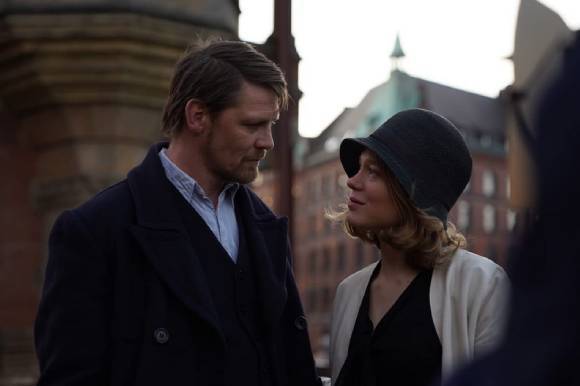Indeed, film theatres didn’t operate in the first four months of 2021, with the government deciding to reopen cultural facilities only when four million people were fully vaccinated. This number was reached in late April 2021, when cinemas started to reopen. However, despite the large and diverse selection of films, audience numbers remained low for some time.
There were several reasons for this. For a long time, people were wary of enclosed spaces and considered visiting cinemas risky. In parallel with the reopening, good weather arrived and outdoor programmes proved more attractive. Furthermore, visits to cinemas were tied to the presentation of the Vaccination Certificate, and this excluded millions of people from this cultural activity.
Due to the unique circumstances, cinemas opted for different opening strategies. The six cinemas of Budapest Film started to operate on the first possible day, 1 May. On the other hand, Hungary's largest cinema chain, Cinema City, needed more time, and reopened a month later, on 2 June.
Films exhibited in the summer months performed far below expectations. The eighth installment of The Fast and Furious, one of the most popular film franchises of our time, garnered 130,341 admissions on its opening weekend in 2017, while F9, the franchise’s ninth installment, which debuted in June 2021, closed its opening weekend with only 39,605 admissions.
The admission to Hungarian features were also disappointing during the summer. Bullhorn Lullaby / Becsúszó szerelem and Így vagy tökéletes, despite both being romantic comedies, also did not fare well: the first reached a total of 10,686 admissions, and the latter a total of 20,205 admissions on their opening weekends. In this genre, local films typically performed well, with over 100,000 tickets usually sold on any opening weekend before the pandemic.
 However, there was a sudden increase in the summer box office takings. When the Vaccination Certificate wasn’t required anymore, Hungarian cinemas had 122,000 visitors on the first weekend of July. More than a hundred thousand film tickets were sold for the first time since Covid-19 reached Hungary, an increase of more than a third over the previous weekend.
However, there was a sudden increase in the summer box office takings. When the Vaccination Certificate wasn’t required anymore, Hungarian cinemas had 122,000 visitors on the first weekend of July. More than a hundred thousand film tickets were sold for the first time since Covid-19 reached Hungary, an increase of more than a third over the previous weekend.
“In the summer, the number of audiences reached 40-75% of 2019 figures. The variance is so big because the decline was greater in art cinemas than in multiplexes. In September, the numbers stood at 50-80% of 2019 figures. Fortunately, the number of cinema-goers is on the rise,” said Erika Borsos, president of the National Association of Cinemas.
Admissions continued to increase in the fall, and some Hollywood event films were already performing well on their opening weekends, attracting numbers which would have been considered high even in the pre-epidemic times. Indeed, 75,000 people bought tickets for Dune during the first four days of its release, while Venom – Let There Be Carnage enjoyed the highest number of admissions during any opening weekend since cinemas started to reoperate in May, with 113,000 tickets sold.
People returned to cinemas mainly because of Hollywood spectacles. For instance, the latest James Bond film, No Time to Die, had a better opening weekend (102,241 admissions) than the previous installment, Spectre, released in 2017 (97,856 admissions in the first four days).
The interest in art films and Hungarian films of a smaller budget has been much more modest. The pandemic has created a strange situation, in which many releases of Hungarian features had to be postponed over the last one year and a half, so that once cinemas reopened, there was a premiere for almost every week of the autumn.
Unfortunately, most of the local films haven't made a strong impact. As a case in point, Natural Light / Természetes fény had a total of only 4,072 admissions, despite winning the Silver Bear at the Berlin Film Festival. Moreover, Ildikó Enyedi's international coproduction The Story of My Wife / A feleségem története, which had its world premiere at the Cannes Film Festival, also fell short of expectations with 28,366 admissions, despite the leading role being played by the film star Léa Seydoux.
In contrast, there were two Hungarian films which were successful at the box office. Although Toxikoma tackles the divisive topic of drug addiction and was classified 18+, it racked up 102,988 cinema admissions. The political thriller The Cost of Deception / Elkúrtuk will probably be the most successful Hungarian film of the year. It currently has 130,022 admissions, but it has achieved this with a controversial campaign and the strong support of the ruling party, Fidesz's politicians and opinion leaders. It implies a rather sad picture of the state of Hungarian film that a feature with clear propagandistic goals is the most popular local offering at the cinemas.
“The upward trend will continue until there are restrictions and closures,” Erika Borsos had warned, and as predicted, in November 2021, as the pandemic worsened and the wearing of masks became mandatory, first in the cinemas of Budapest Film from 1 November and later on 20 November natonwide, the numbers of audiences stopped increasing. Indeed, in that month there were 44% fewer admissions than in November 2019, and for the first time in the fall, the number of weekend cinema-goers dropped below 100,000.
Today, cinemas are being closed in neighbouring countries, yet this has not been the case in Hungary, and there is no apparent government intention to do so during the festive season.
Looking back, COVID-19 first hit Hungary in March 2020 and cinemas were closed for a significant part of the next year and a half, suffering severe financial losses. Overall, cinemas were open for about seven months in 2020, and ticket sales were almost 80% lower than in 2019. Comparisons with this year cannot be made yet since the data for 2021 is not known yet, but knowing that cinemas were closed for four months this year, it is certain that this year's annual ticket sales will also be significantly lower than before the pandemic.
Due to the crisis caused by COVID-19, cinemas have exhausted their reserves and will not have the opportunity to start major developments and renovations for a long time to come. Cinemapink MOM Park was the most affected by the pandemic, and it had to close permanently in August 2021. Another company bought the cinema and reopened it a few months later under the name CinemaMOM. A completely new cinema called Cinext Etele started to operate in October, despite the unfavourable economic situation. But it has to be taken into account that this huge investment - a new shopping mall built in Budapest - started a long time before the crisis.




















